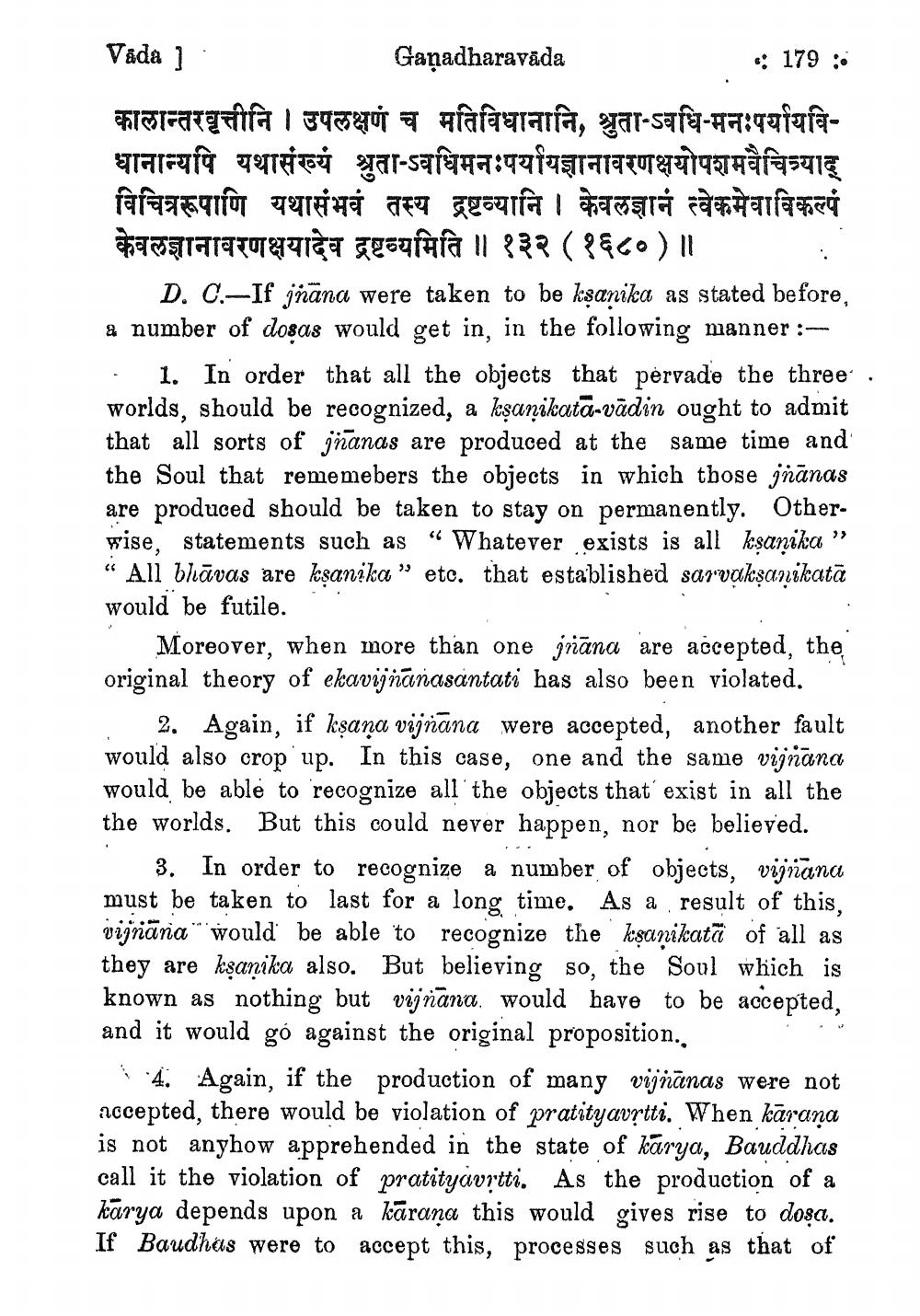________________
. : 179 :
EZO) II
:
Vada ]
Gañadharavāda कालान्तरवृत्तीनि । उपलक्षणं च मतिविधानानि, श्रुता-बधि-मनःपर्यायविधानान्यपि यथासंख्यं श्रुता-ऽवधिमनःपर्यायज्ञानावरणक्षयोपशमवैचिच्याद् विचित्ररूपाणि यथासंभवं तस्य द्रष्टव्यानि । केवलज्ञानं त्वेकमेवाविकल्पं केवलज्ञानावरणक्षयादेव द्रष्टव्यमिति ॥ १३२ (१६८०)॥
D. C.-If jnana were taken to be ksanika as stated before, & number of dosas would get in, in the following manner :. 1. In order that all the objects that pervade the three . worlds, should be recognized, a kșanikatā-vādin ought to admit that all sorts of jñanas are produced at the same time and the Soul that rememebers the objects in which those jñānas are produced should be taken to stay on permanently. Otherwise, statements such as "Whatever exists is all kşanika" “ All bhāvas are kşanika ” etc. that established sarvakşanikatā would be futile.
Moreover, when more than one jvāna are accepted, the original theory of ekavijnanasantati has also been violated.
2. Again, if ksana vijnana were accepted, another fault would also crop up. In this case, one and the same vijnana would be able to recognize all the objects that exist in all the the worlds. But this could never happen, nor be believed.
3. In order to recognize a number of objects, vijnana must be taken to last for a long time. As a result of this, vijñāna" would be able to recognize the kșanikatū of all as they are kşanika also. But believing so, the Soul which is known as nothing but vijnana. would have to be accepted, and it would go against the original proposition..
4. Again, if the production of many vijnanas were not accepted, there would be violation of pratityavrtti. When karana is not anyhow apprehended in the state of karya, Bauddhas call it the violation of pratityavrtti. As the production of a kārya depends upon a kārana this would gives rise to dosa. If Baudhas were to accept this, processes such as that of




